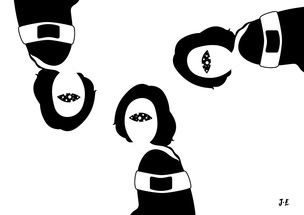
Little Black Ant Bites: A Detailed Overview
Have you ever been bitten by a little black ant? If so, you know that these tiny creatures can cause quite a bit of discomfort. In this article, we will delve into the details of little black ant bites, exploring their causes, symptoms, treatment, and prevention methods.
Understanding Little Black Ants

Little black ants, also known as pavement ants, are small, dark-colored ants that are commonly found in urban and suburban areas. They are known for their ability to create colonies in a variety of environments, including under sidewalks, in trees, and even in homes.
Causes of Little Black Ant Bites

Little black ants bite as a defensive mechanism. When they feel threatened, they will bite to protect themselves. This can happen when you accidentally step on them or when they are disturbed in their nest.
Symptoms of Little Black Ant Bites

The symptoms of a little black ant bite can vary from person to person. Common symptoms include:
| Symptom | Description |
|---|---|
| Redness | The area around the bite may become red and inflamed. |
| Pain | The bite may cause a mild to severe pain, depending on the individual’s sensitivity. |
| Swelling | The area around the bite may swell slightly. |
| Itching | The bite may cause itching, especially in sensitive individuals. |
In some cases, individuals may experience more severe symptoms, such as allergic reactions or infections. If you notice any of the following symptoms, seek medical attention immediately:
- Severe swelling
- Difficulty breathing
- Severe pain
- Fever
Treatment of Little Black Ant Bites
Most little black ant bites can be treated at home with simple first aid measures. Here are some tips for treating a little black ant bite:
- Clean the bite area with soap and water to prevent infection.
- Apply a cold compress to reduce swelling and pain.
- Take an over-the-counter pain reliever, such as ibuprofen or acetaminophen, to alleviate pain and inflammation.
- Keep the bite area clean and dry to prevent infection.
In cases of allergic reactions or severe infections, medical treatment may be necessary. Your doctor may prescribe antibiotics or other medications to treat the infection or manage the allergic reaction.
Preventing Little Black Ant Bites
Preventing little black ant bites involves taking steps to eliminate their nesting sites and reduce their presence in your home or yard. Here are some tips for preventing little black ant bites:
- Seal cracks and crevices in your home to prevent ants from entering.
- Keep food and garbage in sealed containers.
- Remove standing water around your home to eliminate breeding grounds for ants.
- Trim trees and shrubs away from your home to prevent ants from nesting in them.
- Use ant baits and sprays to control ant populations in your yard.
By following these tips, you can reduce your risk of being bitten by little black ants and enjoy a more comfortable and ant-free environment.
Conclusion
Little black ant bites can be a nuisance, but with proper treatment and prevention methods, you can manage and minimize their impact. By understanding the causes, symptoms, and treatment options for little black ant bites, you can take steps to protect yourself and your loved ones from these pesky pests.







